Community Care: Mental Health in African American Women Report
VerifiedAdded on 2022/08/21
|5
|812
|15
Report
AI Summary
This report presents a community diagnosis concerning the mental health of African American women. It identifies psychosocial factors such as lack of awareness, poor hygiene, economic instability, and sociocultural traditions as contributors to increased stress, anxiety, and substance abuse within the community. The diagnosis highlights a high risk of mental illness linked to low income, depression, and addiction. The report proposes primary, secondary, and tertiary intervention strategies, including group therapy, community mental rehabilitation, and employment support. Expected outcomes include minimizing mental illness rates, developing cultural awareness, and fostering community collaboration. Evaluation strategies involve depression and addiction scales, with resources including community leaders and public health nurses. The report aims to address the social determinants of health to improve mental well-being.
1 out of 5
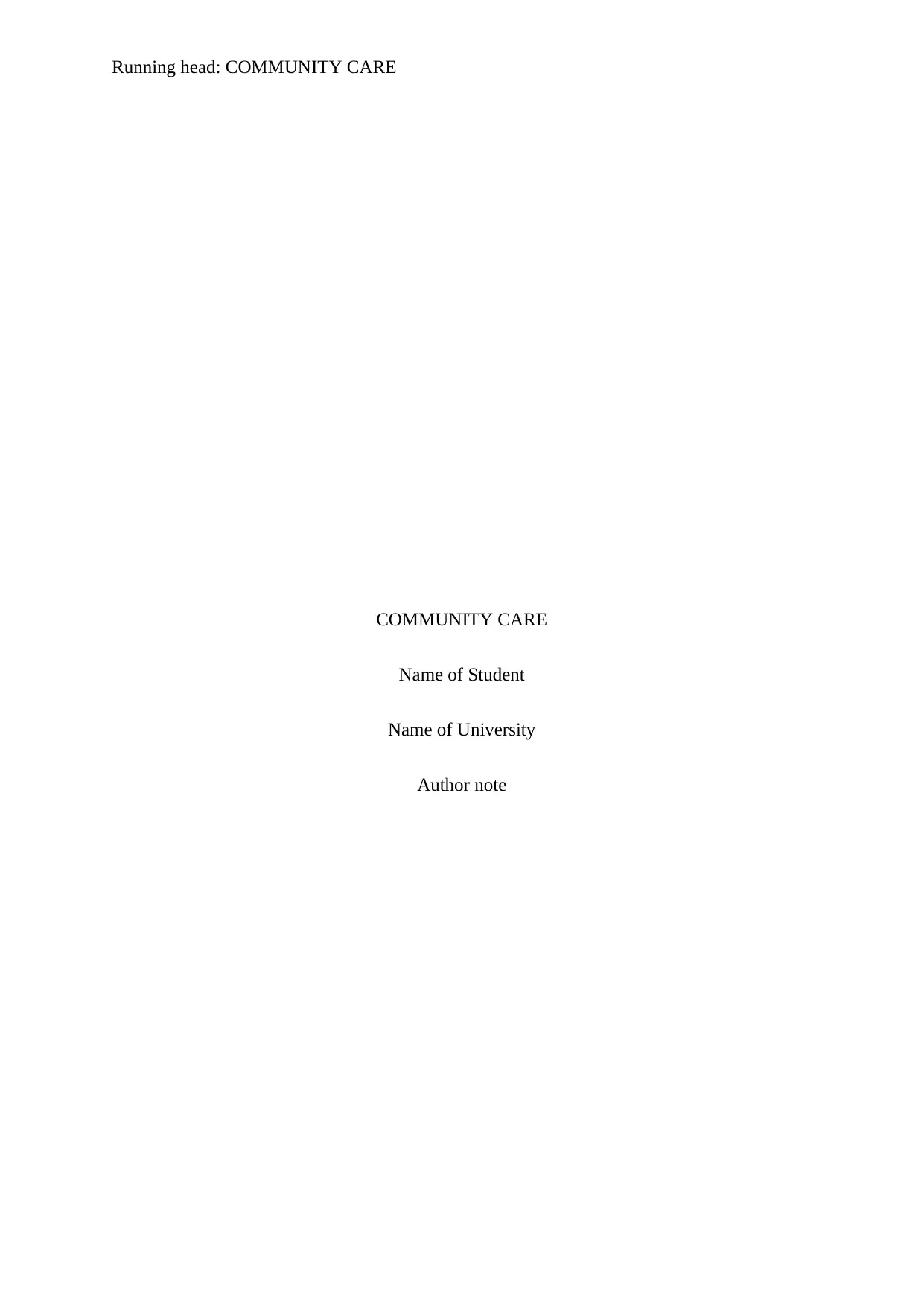
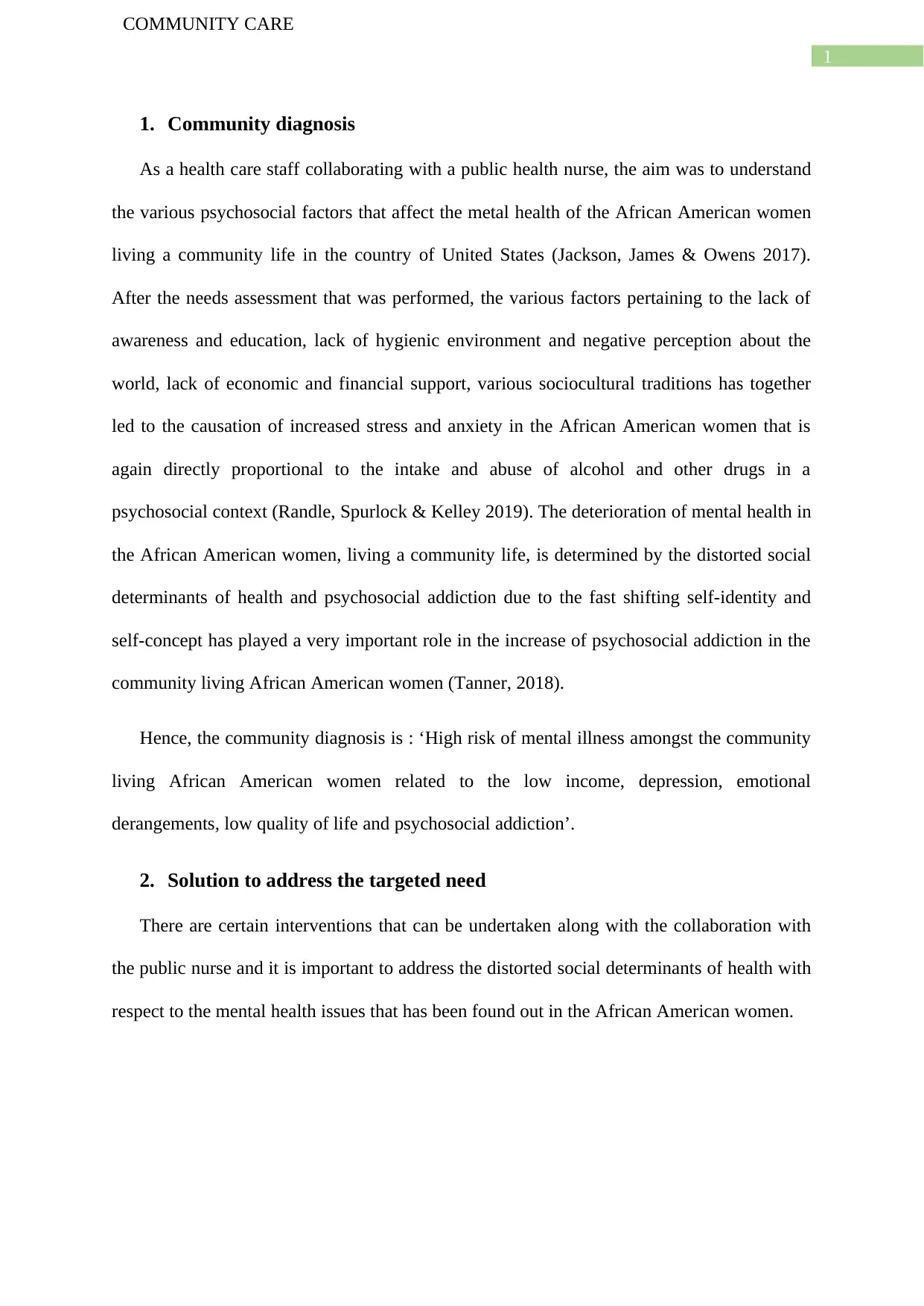
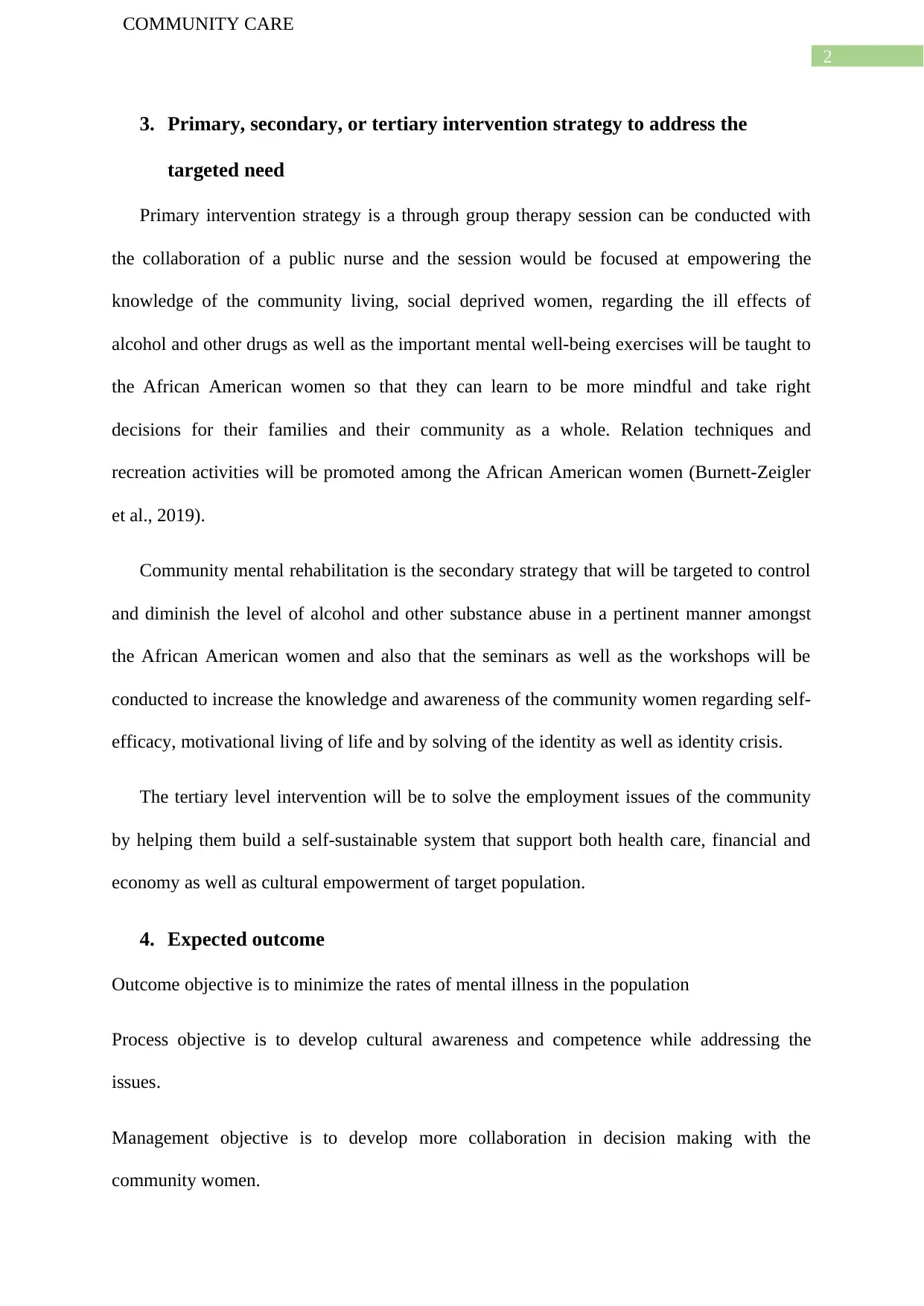

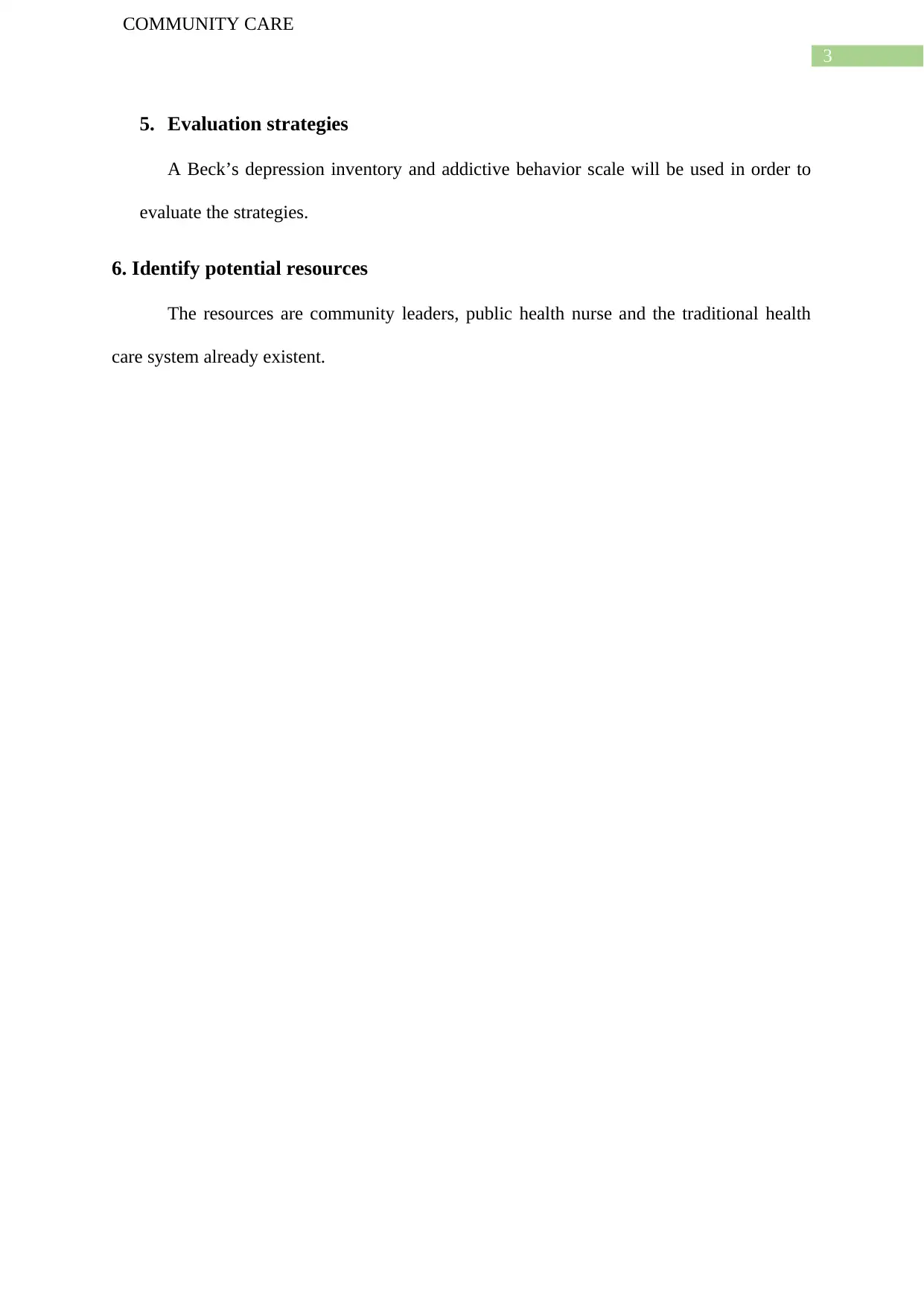
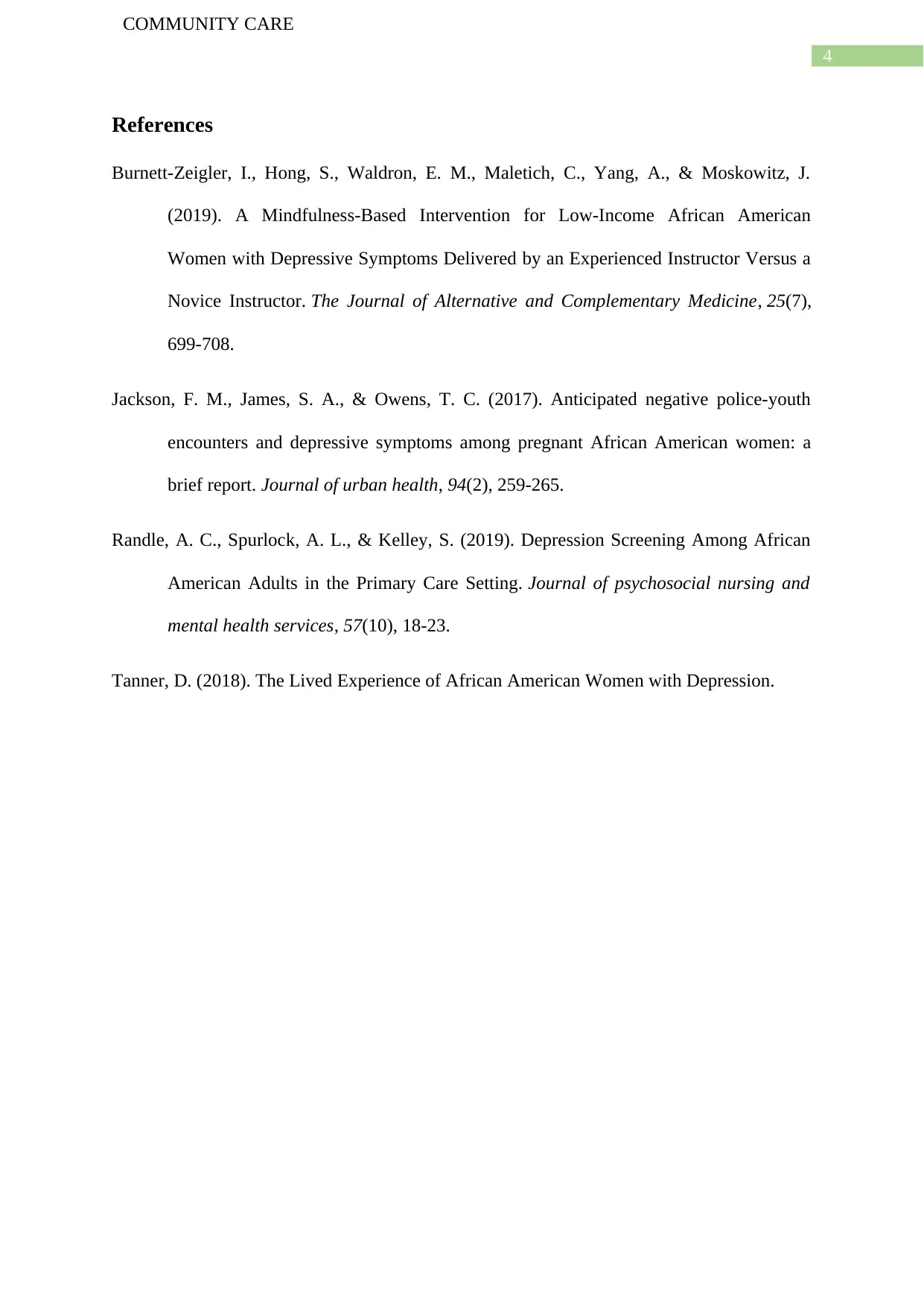






![[object Object]](/_next/static/media/star-bottom.7253800d.svg)